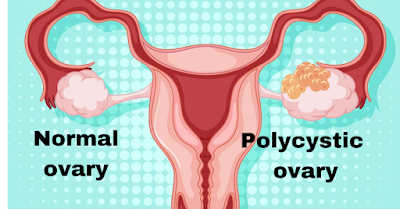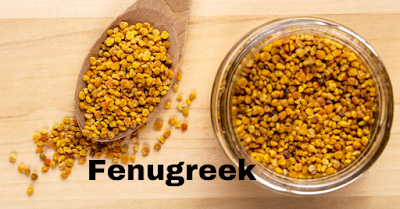Understanding PCOD Causes, Symptoms, and Management
It's characterized by various symptoms that can impact both physical and emotional well- being. While medical intervention is crucial, there are also several effective home remedies that can be incorporated into a comprehensive management plan.

In this composition, we'll delve into the causes, symptoms, and holistic management of PCOD, including some valuable home remedies.
Difference between pcos and pcod
Polycystic Ovary Syndrome (PCOS) and Polycystic Ovarian Disease (PCOD) are related but distinct conditions affecting the female reproductive system. PCOD is a broader term encompassing various hormonal imbalances, irregular periods, and often enlarged ovaries with small cysts. It's a syndrome with symptoms like weight gain, hair growth, and acne.
PCOS, on the other hand, specifically involves the presence of multiple small cysts on the ovaries, along with irregular menstrual cycles, and elevated androgen levels. This can lead to similar symptoms as PCOD, but with a focus on hormonal imbalance. It's crucial to consult a healthcare professional for accurate diagnosis and personalized treatment for either condition.
Causes of PCOD:
Poly cystic Ovarian disease( PCOD) is a complex hormonal complaint that results from a combination of inheritable, hormonal, and environmental factors. While the exact cause of PCOD isn't completely understood, researchers believe that several crucial factors contribute to its development

- Genetic Predisposition :
There's a strong genetic element to PCOD. However, her risk of developing the condition is advanced, If a woman has a family history of PCOD. Certain inheritable variations may make some women more susceptible to the hormonal imbalances characteristic of PCOD.
- Hormonal Imbalance
PCOD is primarily characterized by an imbalance in reproductive hormones, particularly insulin and androgens( manly hormones like testosterone). Elevated levels of insulin, a hormone that regulates blood sugar, can lead to increased product of androgens. These androgens disrupt the normal function of the ovaries, causing the development of small follicles( fluid- filled sacs) that may not develop properly, leading to irregular or absent ovulation.
Many women with PCOD exhibit insulin resistance, a condition in which the body's cells don't respond effectively to insulin, causing the pancreas to produce further insulin. Elevated insulin situations can stimulate the ovaries to produce further androgens, contributing to the hormonal imbalances seen in PCOD.
- Inflammation
Chronic low- grade inflammation may play a part in the development of PCOD. Inflammation can contribute to insulin resistance and disrupt hormonal balance, farther exacerbating the condition.
- Environmental Factors
- Life style Factors
Sedentary lifestyles and poor salutary choices can contribute to obesity and insulin resistance, both of which are linked to PCOD. Excess body weight can further disrupt hormonal balance and increase the severity of PCOD symptoms.
It's important to note that PCOD is a complex condition condition, and not all women with PCOD will have the same underlying causes. The interplay between inheritable predilection, hormonal imbalances, and environmental factors makes each woman's experience with PCOD unique.
Symptoms: The Varied Angles of PCOD
The symptoms of PCOD can manifest else in each existent, making diagnosis and management a challenging task. Some of the most common symptoms include
- Irregular Menstrual Cycles
Women with PCOD frequently witness irregular, occasional, or absent menstrual periods due to the lack of ovulation.
Excessive hair growth on the face, chest, and back, frequently suggesting manly- pattern hair growth.
- Acne and Oily Skin
- Weight Gain
Numerous women with PCOD struggle with weight gain or find it delicate to lose weight.
Lacing hair and hair loss on the crown can be distressing for those with PCOD.
- Fertility Challenges
Ovulation irregularities can lead to difficulties in conceiving.
- Mood Swings and Depression
Hormonal fluctuations can contribute to mood swings and feelings of depression.
Diagnosis and Management:
Diagnosing PCOD involves a combination of medical history assessment, physical examination, and blood tests to measure hormone levels. Ultrasound imaging may also be used to visualize the ovaries and identify cysts.
Management Strategies
While there's no cure for PCOD, various management strategies can help palliate symptoms and improve overall quality of life
1.Lifestyle Modifications
Adopting a healthy life can play a significant part in managing PCOD. Regular exercise, a balanced diet, and maintaining a healthy weight can help improve insulin sensitivity and hormone balance.
2. Medications:
Hormonal birth control methods, similar as birth control pills, can help regulate menstrual cycles and control androgen situations. Other medications, like anti-androgens, may be specified to manage excess hair growth and acne.
3. Fertility Treatment
Women trying to conceive may require fertility treatments similar as ovulation induction or in vitro fertilization( IVF) to enhance the chances of pregnancy.
4.Managing Insulin Resistance
Medications similar as metformin, generally used to treat type 2 diabetes, can help improve insulin perceptive and regulate hormone levels in women with PCOD.
5.Regular Check- ups
Since PCOD is a lifelong condition, regular check- ups with healthcare providers are essential to cover symptoms, adjust treatment plans, and address any emerging concerns.
6. Emotional Well- being
The emotional impact of PCOD shouldn't be undervalued. The physical symptoms can frequently lead to emotional challenges similar as low self- esteem, anxiety, and depression. It's pivotal for women with PCOD to seek emotional support, whether through therapy, support groups, or confiding in loved ones.
Home Remedies for PCOD
Some women find relief from PCOD symptoms through natural remedies like herbal drink, supplements, acupuncture, and stress- reduction ways.
1.Balanced Diet
Adopting a balanced diet rich in whole grains, spare proteins, fruits, and vegetables can help regulate insulin levels and manage weight. Focus on foods with a low glycemic index to help rapid-fire spikes in blood sugar. Avoid processed foods, sticky snacks, and excessive caffeine input.
2. Herbal Teas
Herbal teas like spearmint and cinnamon have shown potential in reducing androgen situations and perfecting insulin sensitivity. Spearmint tea can help control inordinate hair growth and acne associated with PCOD.
4. Regular Exercise
Engaging in regular physical activity helps improve insulin perceptivity, aid weight operation, and palliate stress. Incorporate a blend of cardiovascular exercises, strength training, and yoga into your routine.
5.Stress Management
Chronic stress can complicate hormonal imbalances. Practicing relaxation ways like deep breathing, contemplation, and awareness can help manage stress and its impact on PCOD symptoms.
6.Acceptable Sleep
Prioritize getting enough quality sleep each night. Sleep privation can disrupt hormonal balance and complicate PCOD symptoms.
7.Omega- 3 Fatty Acids
Foods rich in omega- 3 fatty acids, such as fatty fish( salmon, mackerel), flaxseeds, and walnuts, can help reduce inflammation and regulate hormone situations.
8. Apple Cider Vinegar
Some individualities find relief from PCOD symptoms by consuming diluted apple cider vinegar, which may help improve insulin sensitivity.
8. Cumin Seeds
9.Fenugreek
Fenugreek seeds have been shown to help lower blood sugar levels and improve insulin perceptivity. You can soak fenugreek seeds overnight and consume them in the morning or add them to your meals.
10. Turmeric
Curcumin, the active compound in turmeric, has anti-inflammatory and antioxidant properties that may help palliate PCOD symptoms. Adding turmeric to your diet or consuming it as a supplement might be beneficial.
Frequently Asked questions
Q. What is PCOD?
Ans. Polycystic ovarian disease generally known as PCOD is a complex hormonal disorder that affects millions of women worldwide
Q. Are there natural remedies for PCOD?
Ans. Yes, there are several natural remedies that can help manage PCOD symptoms. These include dietary changes, regular exercise, and herbal supplements.
Q. How can diet help with PCOD?
Ans. A balanced diet can help regulate insulin levels and hormone production.Adopting a balanced diet rich in whole grains, spare proteins, fruits, and vegetables can help regulate insulin levels and manage weight. Focus on foods with a low glycemic index to help rapid-fire spikes in blood sugar. Avoid processed foods, sticky snacks, and excessive caffeine input.
Q. What role does exercise play in managing PCOD?
Ans. Regular exercise helps improve insulin sensitivity and can help regulate menstrual cycles. It also aids in maintaining a healthy weight, which is important for PCOD management.
Q.Can herbal supplements be effective for PCOD?
Ans. Some herbal supplements like cinnamon, fenugreek, and spearmint have shown promise in managing PCOD symptoms.
Q.How does stress affect PCOD?
Ans.High stress levels can worsen PCOD symptoms by influencing hormone levels. Practicing stress-reducing techniques like meditation, deep breathing, and yoga can be beneficial.
Q. Is it important to maintain a healthy weight with PCOD?
Ans. Yes, maintaining a healthy weight is crucial for managing PCOD. It helps regulate hormone levels and can improve symptoms like irregular periods and insulin resistance.
Q.What are some effective natural ways to regulate menstrual cycles with PCOD?
Ans. Eating a balanced diet, exercising regularly, managing stress, and incorporating certain herbs like cinnamon and chasteberry can help regulate menstrual cycles in PCOD.
Q.Can PCOD be managed without medication?
Ans.In some cases, PCOD symptoms can be managed effectively through lifestyle changes like diet and exercise, along with natural remedies.
Conclusion
PCOD is a complex condition that requires a multidimensional approach to management. While medical intervention is vital, incorporating these home remedies can round conventional treatments and help improve symptoms. It's important to consult a healthcare professional before making significant changes to your diet or life, especially if you have underlying health conditions. By understanding the causes, recognizing the symptoms, and enforcing effective management strategies, women with PCOD can take control of their health and well- being







Post a Comment